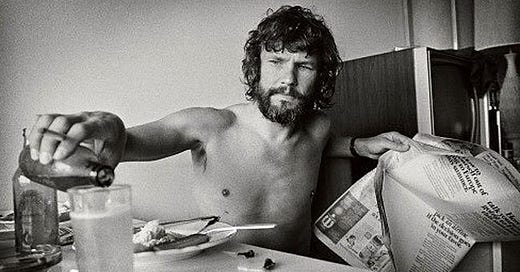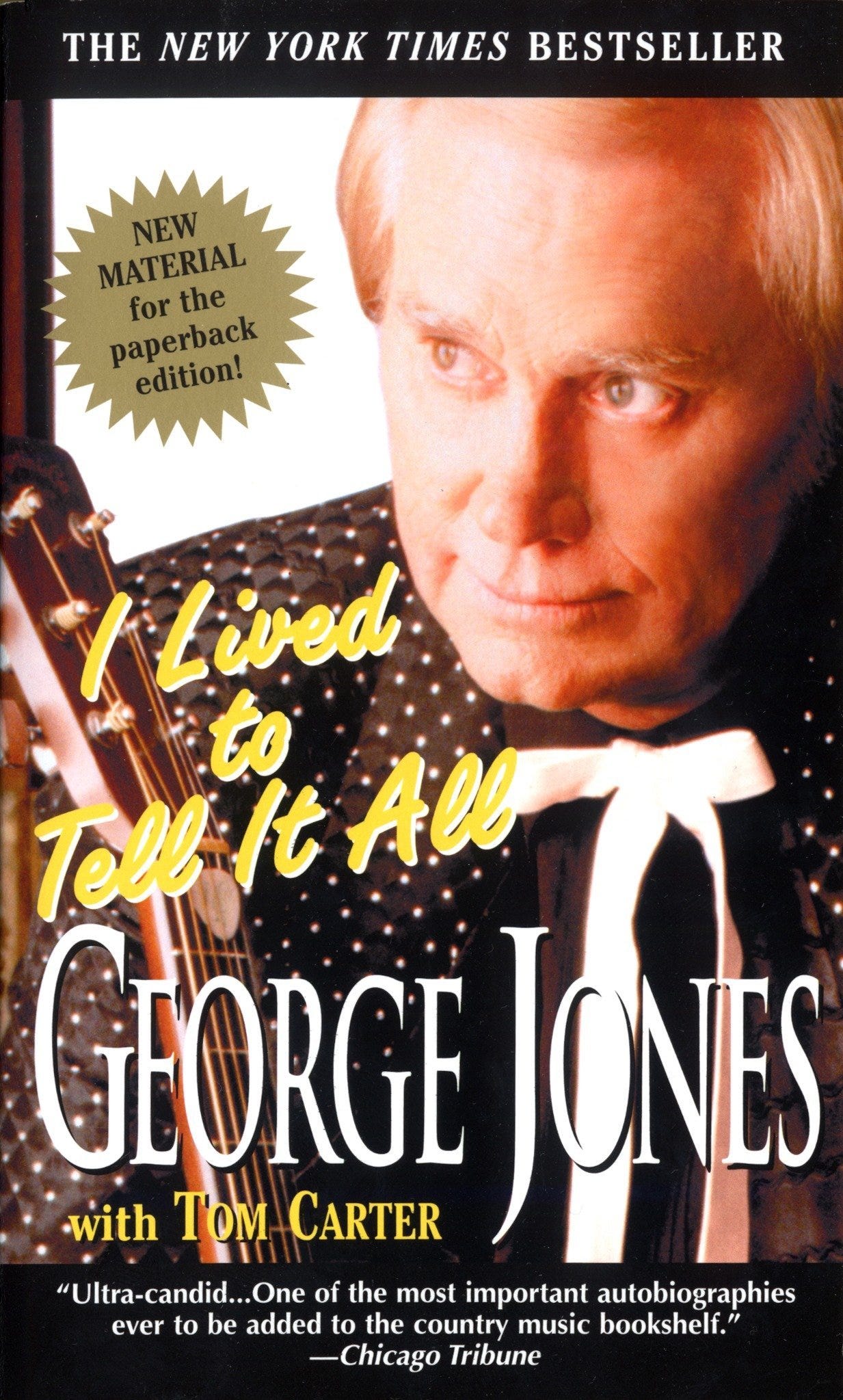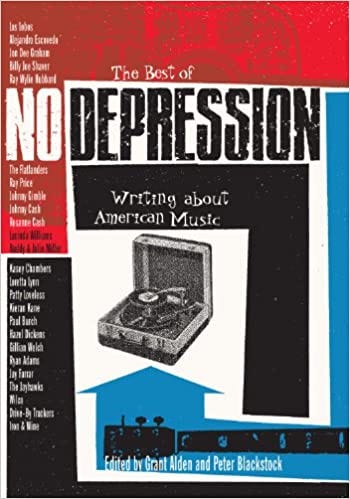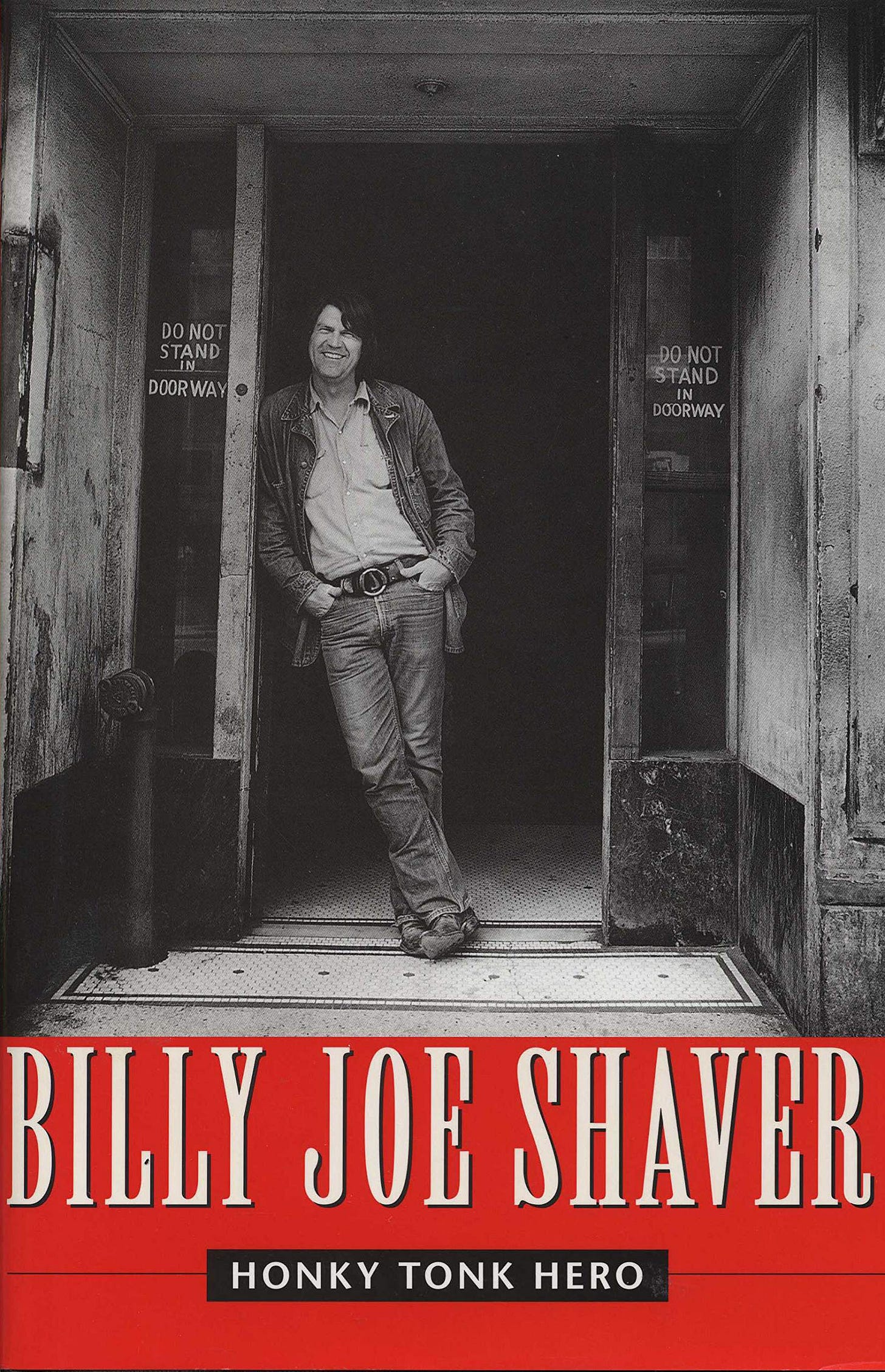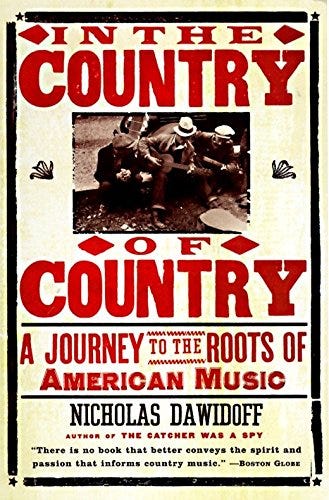Read All About It: Five Essential Books About Country Music
First published by Death To False Country November 20, 2013
I haven't read every book on country music, but I have read some good ones. And I've read some that are downright essential. There are some on my list that I haven't read so I can't include them, such as Frank M. Young's The Carter Family: Don't Forget This Song and Neil Alexander Hamilton's Outlaws Still At Large but I think these five books are the best place for anyone to expand their knowledge about the genre.
5. I Lived To Tell It All George Jones with Tom Carter
The music of George Jones is integral to the evolution of country music, spanning six decades from the honky tonk era to the Nashville Sound and beyond. Few performers saw, sang or drank as much as The Possum or experienced such soaring peaks or miserable valleys. Next to Hank Williams he is the genre's most tragic hero; never fully free of his personal demons or appreciated enough for his accomplishments, as he was willing to admit to Tom Carter. His stories are funny, sad, inspiring, deplorable and often unbelievable (except who could make this stuff up?).
Here is the life of a country music star laid out in lurid detail: how genuine love and support battle arrogance and exploitation for the soul of a person who survives on external praise, never being given the space (by himself or his fans and handlers) to cultivate his own self-worth. Throughout the narrative Jones admits his shortcomings (including his starcrossed marriage to Tammy Wynette), but never assumes full responsibility, perhaps due to an addict's sense of denial. As you can probably deduce, it's not a pretty story—but it's a real one (even if it is a bit surreal at times).
4. The Best of No Depression: Writing about American Music Grant Alden (Editior)
From the latter half of the 90's to 2008, No Depression magazine was the voice of so-called "alternative" country music. What fell into that elusive category largely depended on what co-founders and editors Grant Alden and Peter Blackstock thought fit (and didn't). Maybe it was just serendipity but following its publication bands such as Wilco, Son Volt, The Jayhawks, The Bottle Rockets and Whiskeytown all started to make inroads to the mainstream.
No Depression wrote about these upstarts—as well as legends forced to the fringes of country music—such as Johnny Cash, Billy Joe Shaver, Steve Earle and Buddy Miller with a passion and conviction not seen since the heyday of Rolling Stone, giving Spin a run for its money where journalistic credibility and integrity are concerned. But credibility and integrity don't pay the bills, as most of the artists they covered know all too well. They stopped their paper printing in 2008 and became strictly web-based and still continue their coverage of all forms of so-called Americana.
The Best of is a collection of great interviews, conducted expertly, with the likes of Drive-By Truckers, Johnny Cash, Ray Price and Wilco, providing insight into these artists' work and ideas as no other publication at the time was capable of. This is country music fans writing about country music. They just happened to be pretty damn literate and articulate country fans, giving these often overlooked artists not just acknowledgment, but some hard-fought purpose and dignity.
3. Honky Tonk Hero Billy Joe Shaver
Leave it to Billy Joe Shaver to break with the ranks of his fellow country legends and write his own autobiography—making it one of the few not organized by or filtered through a writer-for-hire. Billy Joe, as everyone knows, is one hell of a storyteller in song, so one might expect a book of Faulkner-like proportions. It's not. He uses plain, everyday speech throughout the recounting of his life as a husband, father, singer and songwriter--only attaining a moderate level of success as each.
Billy Joe is undeniably a hero and a legend but he has never been a star. Rather than concentrating on the tragedies and missed opportunities that befell him each step of the way, though, he comes across as humble and appreciative (even if not especially joyful) for what has gone his way. There are plenty of cautionary tales about what to avoid in the music business and life but it's tempered with how to live and do right. One gets the feeling that Billy Joe's hatsize has remained the same since he started, which—with all he's been through—makes him a hero and a legend as a man, even without the music.
2. In the Country of Country: A Journey to the Roots of American Music Nicholas Dawidoff
How such a comprehensive guide to the origins and evolution of country music could be condensed into 398 pages is a mystery to me. In the Country of Country traces our music back to the people, places and events that formed it, from the Great Depression and the Dustbowl migration to the Grand Ole Opry, the Bakersfield Sound and "alt" country and everything in between.
There's plenty on Johnny Cash, Patsy Cline, Merle Haggard, and other of country's most well-known acts. The book's real highlights, though, come from the segments on lesser-known names such as Rose Maddox, Harlan Howard and Doc Watson. Much of the magic comes from Dawidoff's encounters with his subjects; some seemingly cautious to let in an outsider, and some instantly candid with him. It's clear that for Dawidoff, writing this book was a labor of love—and he had the knowledge and perseverence to to make the fruit of his labor worthwhile.
1. Hank Williams: The Biography Collin Escott
Let's call Collin Escott what he is: America's foremost expert on Hank Williams. The funny thing is, he's not even an American (by birth anyway), he's British. Americans love their legends, whether it's Paul Bunyon or Jesse James. Probably a little too much to be objective. Hank Williams, few would argue, is country music's biggest legend, and it's easy to believe the best and worst without substantiating it.
Escott does all of us a favor (and the ghost of Hank as well) by reminding us that he was a human being, and not merely an archetype—and he does it from a scholar's perspective. Books about Hank Williams abound but none so precisely researched and meticulously crafted. Learning about the life and times of Hank Williams won't tell you everything you need to know about country music anymore than listening to him will. But, it will tell you almost everything. No other country artist had the greatness or the frailty that Hank possessed, but that didn't make him superhuman (as his life story attests), only more human. Escott delves into that paradox better than any writer has before or since.

